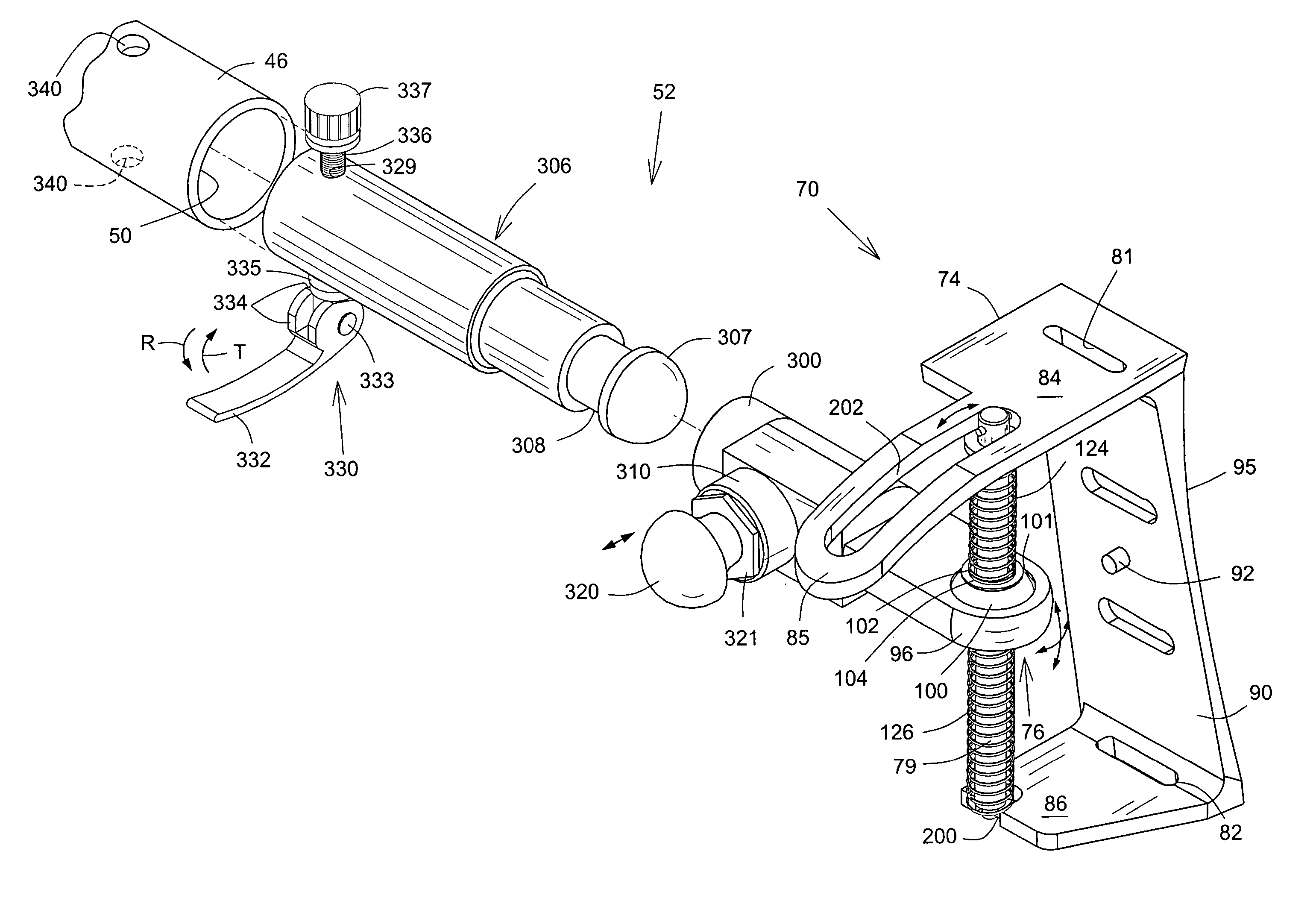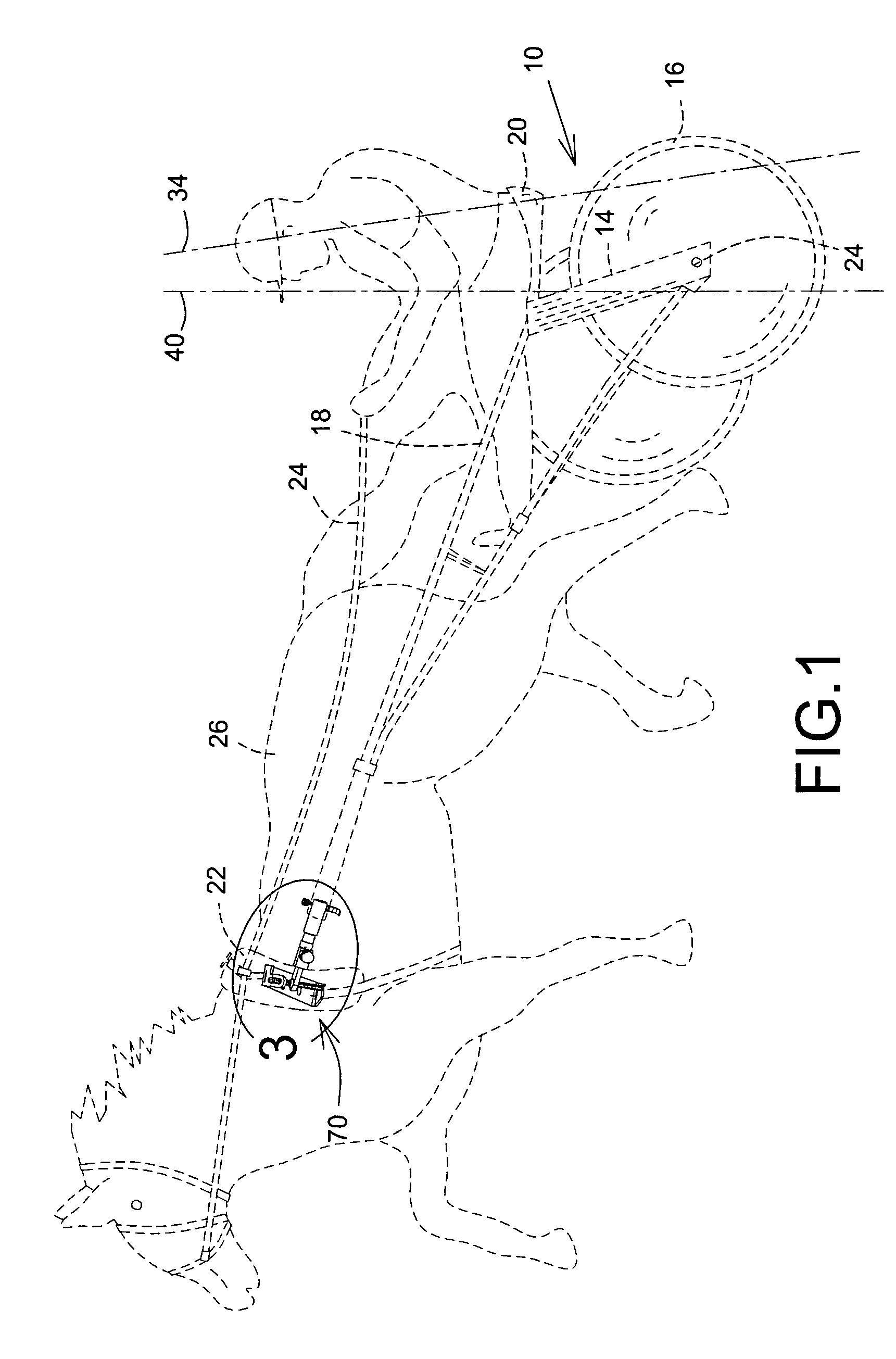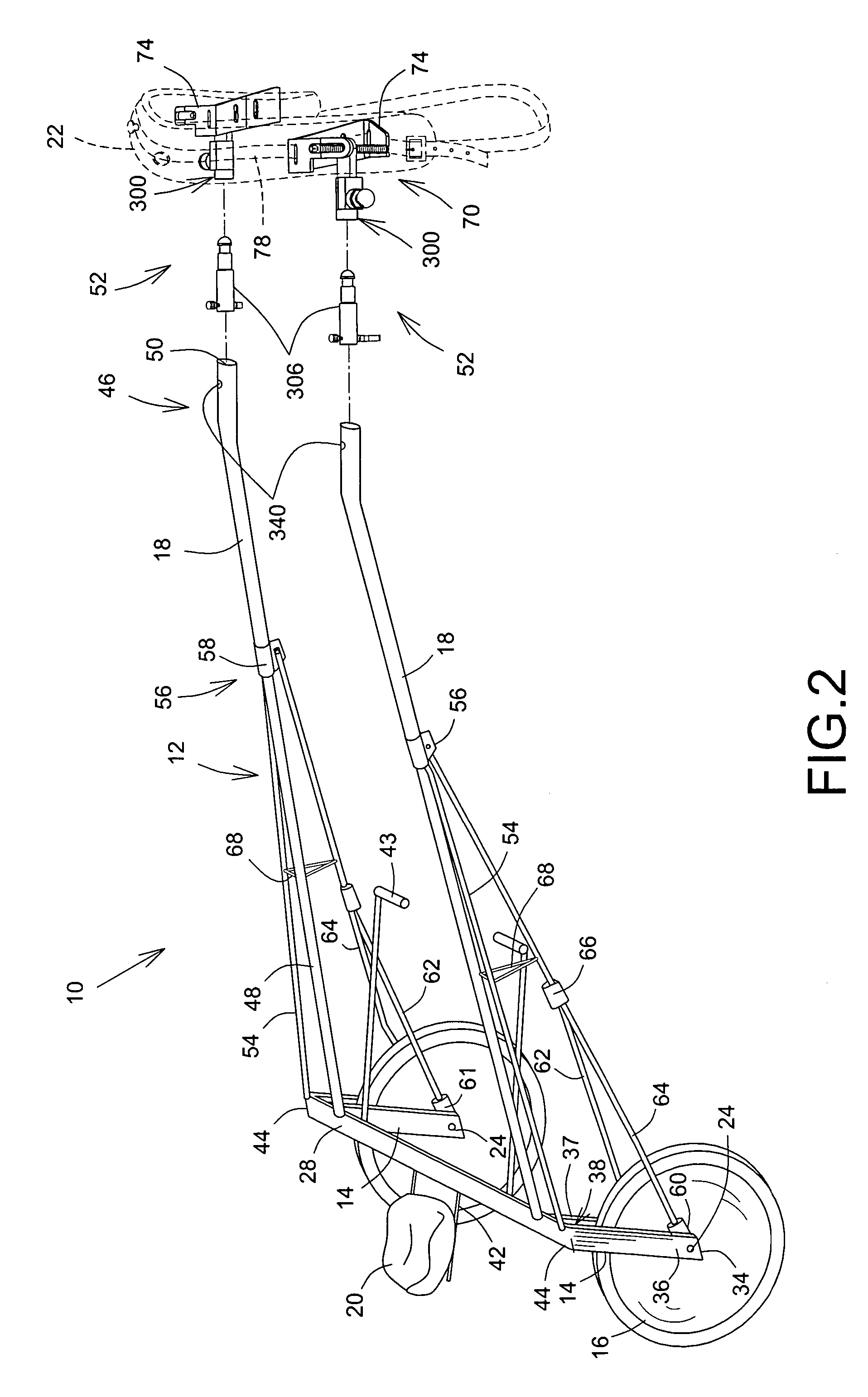Sulky shaft connector device
a technology of shaft connector and sulky, which is applied in the field of racing sulky harnesses, can solve the problems of sulky wheels oscillating, sulky to lift upwardly, and hinder the horse's natural running gait, so as to achieve significant more natural gait, maintain maximum speed, and quick fit
- Summary
- Abstract
- Description
- Claims
- Application Information
AI Technical Summary
Benefits of technology
Problems solved by technology
Method used
Image
Examples
Embodiment Construction
[0023]Referring now to FIGS. 1 and 2, a racing sulky is shown generally at 10. Broadly speaking, the sulky 10 includes a frame 12, a pair of forks 14, a pair of wheels 16, two elongate sulky shafts 18 and a seat 20. A harness 22 and reins 24 respectively provide a means of connecting the sulky 10 to a horse 26 and controlling the horse 26.
[0024]The frame 12 includes a rear cross connector bar 28 to which the two forks 14 are connected. Typically, the forks 14 are welded to the cross connector bar 28, but maybe part of a single piece of material which is machined and formed into the two forks 14. In accordance with the present invention, the forks 14 are angled away from the rear end 30 of the horse 26 and locate a rider's center of mass 34 behind the wheel's axles 24. Since both forks 14 are essentially identical, only one will be described in detail. The fork 14 includes two spaced apart struts 36, 37 that form a gap 38 of sufficient width to allow the wheel 16 to be mounted thereb...
PUM
 Login to View More
Login to View More Abstract
Description
Claims
Application Information
 Login to View More
Login to View More - R&D
- Intellectual Property
- Life Sciences
- Materials
- Tech Scout
- Unparalleled Data Quality
- Higher Quality Content
- 60% Fewer Hallucinations
Browse by: Latest US Patents, China's latest patents, Technical Efficacy Thesaurus, Application Domain, Technology Topic, Popular Technical Reports.
© 2025 PatSnap. All rights reserved.Legal|Privacy policy|Modern Slavery Act Transparency Statement|Sitemap|About US| Contact US: help@patsnap.com



